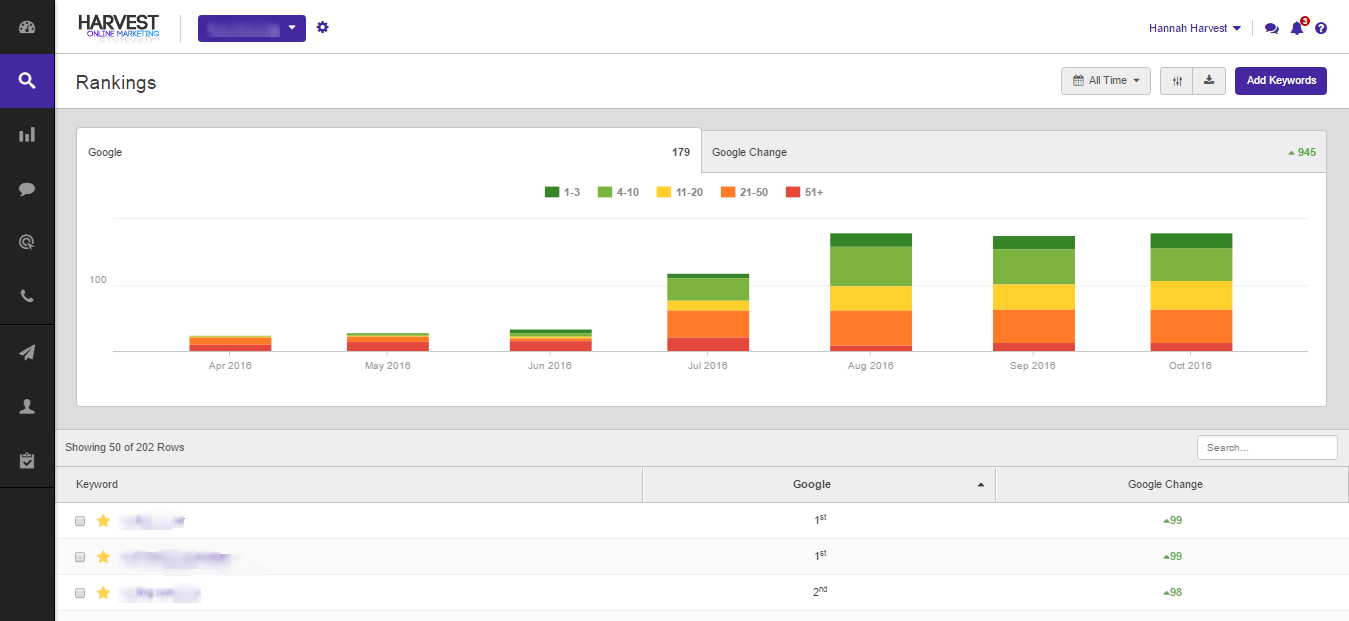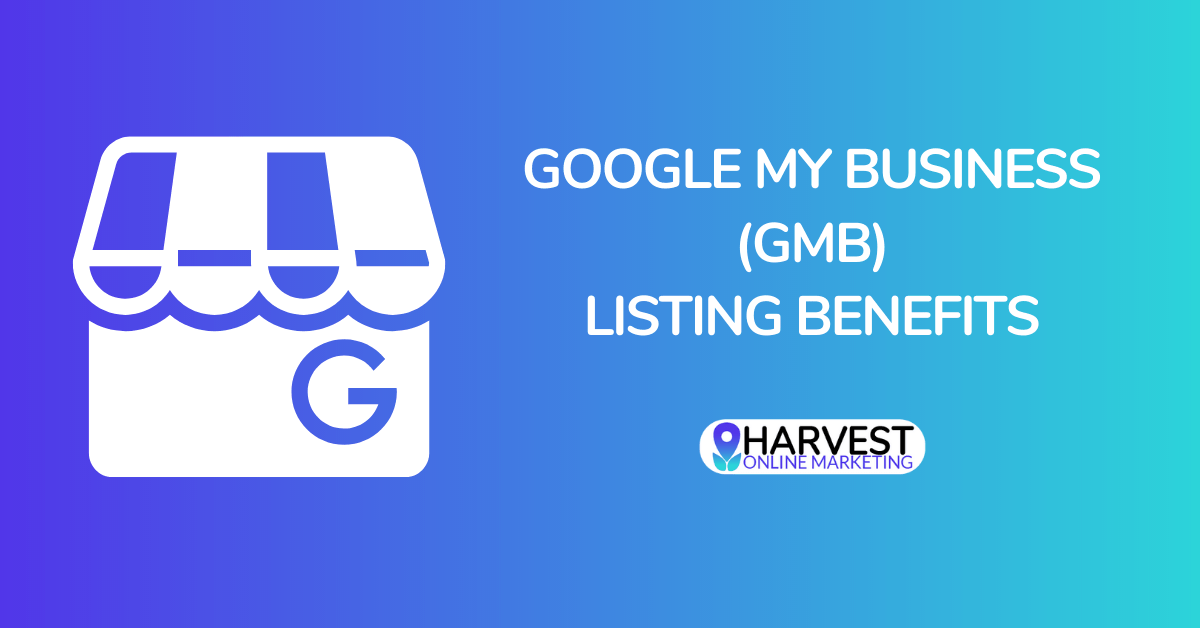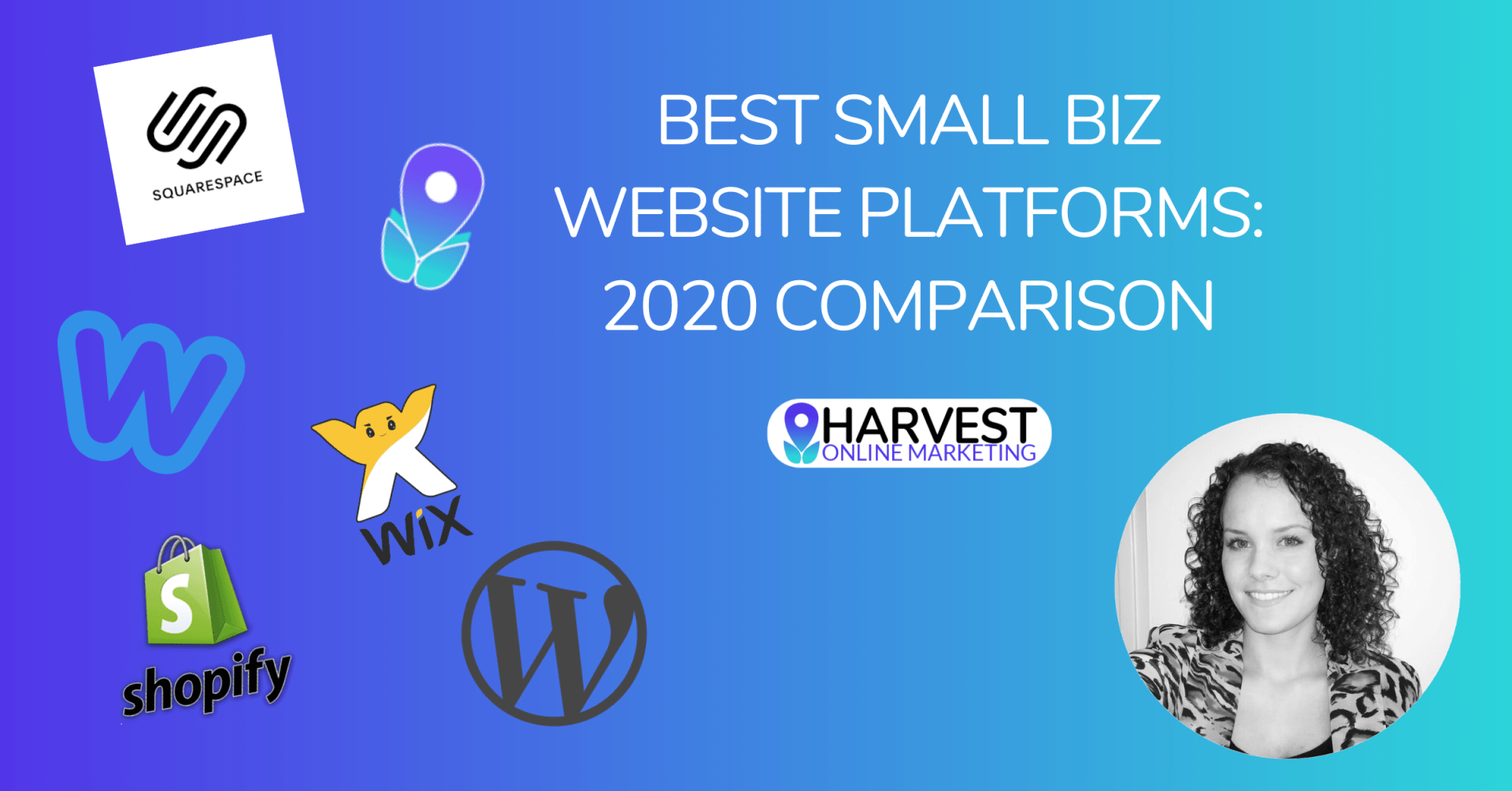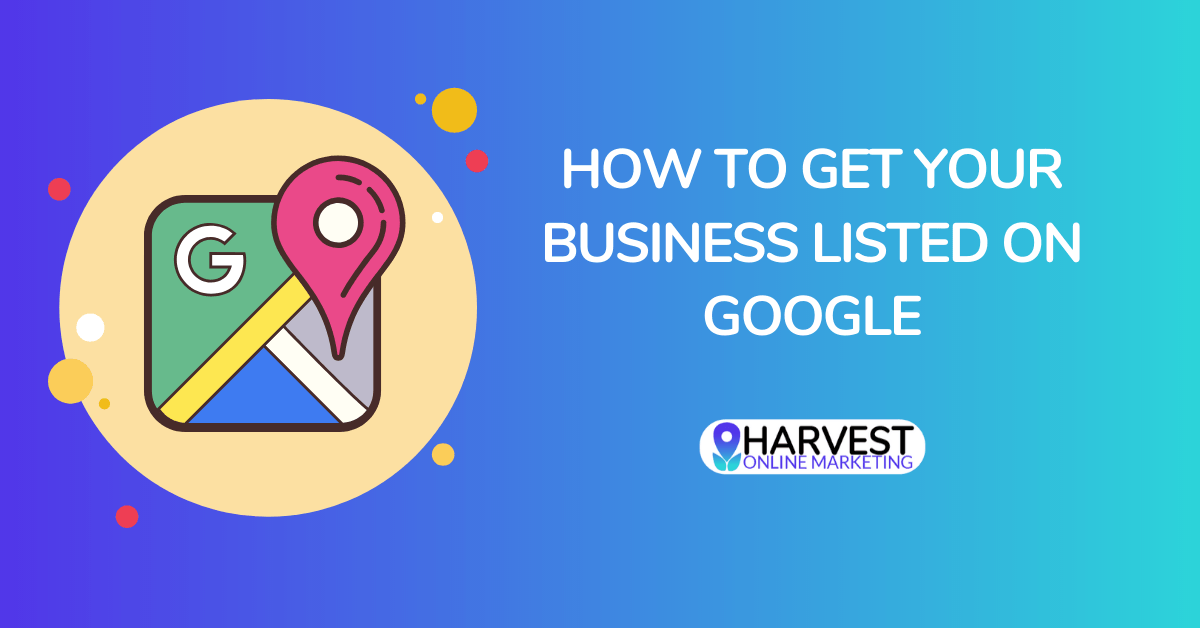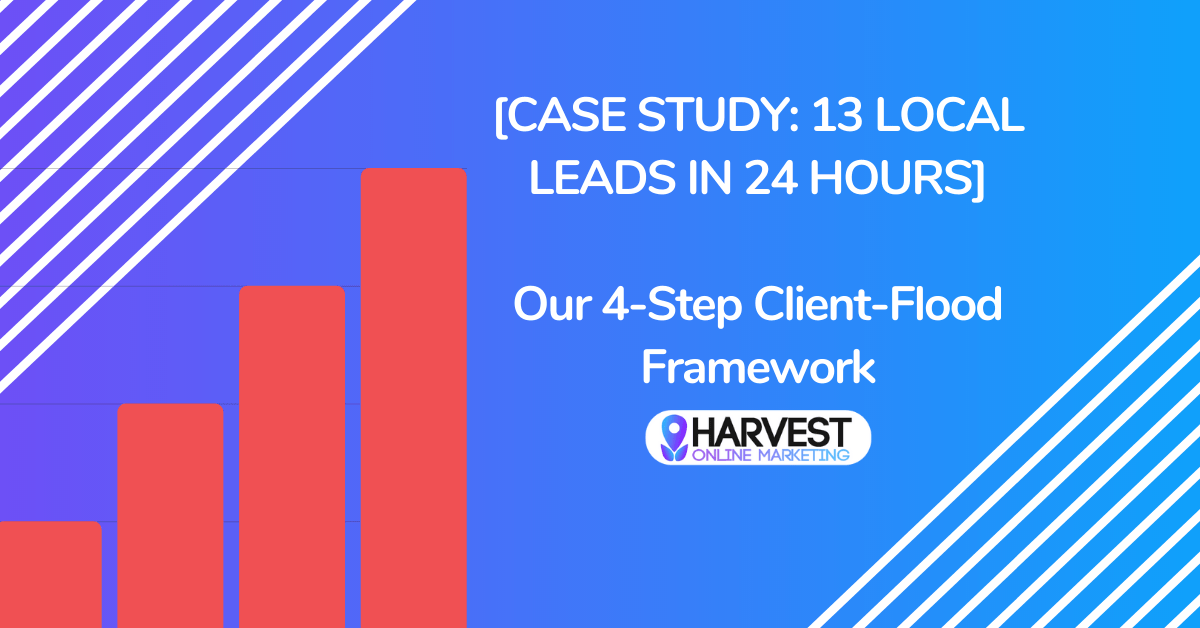
What Type of Marketing Do You ACTUALLY Need, Based on Your Business Type?

-
Hey, I'm Hannah - owner & author.
ButtonI've been helping small businesses use data and design to grow for over a decade. I hope you're next!
A guide for small business owners who know they need more visibility and sales, but aren't sure where to start or which strategy is best for them.
As someone who has been in digital marketing for quite a while, you can imagine I field a
lot of questions about starting and marketing businesses of all types, and I get a lot of inquiries from people I can't necessarily help. Especially after refining our market and services for the past year, there are a number of people I have to turn down because I don't want to take on anyone who isn't a perfect match.
(Psst, we primarily serve brick & mortar/local service clients with our agency services like
local seo,
industry-specific guaranteed lead generation, websites, and search & social ad campaigns... you can read a rundown
here.)
So with that being said , I wanted to put together a little guide to help those who maybe aren't ready for a full fledged marketing service yet, or aren't sure what they need, despite knowing that they
need more visibility and sales.
People frequently think they need one digital marketing service or strategy when really they don't. So I want to give a quick rundown of a typical client acquisition process for different business types, and what that means for you in terms of the systems and marketing campaigns you have in place.
Step 1: WHAT do you do and WHO do you serve?
Defining what
you do and for who
is absolutely essential. Without that, there is no way to define your marketing or figure out where your target customer hangs out.
Sometimes the answer is obvious, like in the case of a "roofer in Chicago" etc etc. Roofers in Chicago serve homeowners and business owners by providing roofing construction services. Right? Right. Easy.
In the case of an ecommerce store that sells false lashes, the store serves [insert perfect audience - maybe women between 18-35 who make $xxx per year and are interested in things like Kim Kardashian, Urban Decay, etc.] by providing beauty products that make [perfect audience members] feel [perfect outcome - maybe something like beautiful without effort, whatever the outcome the person is trying to achieve by buying the product.]
You are a [subject or service expert] that serves [who] by providing [what].
I am a [digital marketer] that serves [small businesses - honestly, I could refine this much further] by [building client generation machines] that allow [business owners] to [stop worrying about where their next customer or appointment will come from.]
In these cases it's very easy to define what your marketing is (and I'll discuss that below) because you know exactly who
you are serving, what
you are providing, and because of that you can figure out where your target market hangs out to get in front of them.
But sometimes I find that a business owner doesn't really know yet. Case in point, my friend wants to provide UX and visual design services, but also wants to provide specialized computer gaming systems. To who, I asked? Which one?
Your product + market offering defines where you market yourself. Because how do you sell hot dogs? You get in front of a bunch of hungry people who want hot dogs.
Step 2: WHERE does your audience hang out?
For ecommerce stores
: this is usually Facebook, Google, Pinterest, Instagram, etc. Product-based searches are competitive and nationwide so you will need a big SEO budget to compete with big dogs. Social media like Facebook, Pinterest, and Instagram can get you cheaper visibility but you'll have to pay for it at first. In the long run, you can build a rabid audience but will always need to pay for marketing.
For service-based/local businesses:
this is usually Google (people searching for your services), Facebook & Instagram. Local searches for small businesses are only as competitive as your local industry, so you don't need as big of a marketing budget as an ecommerce store might for SEO. Facebook and Instagram can be used to reach your ideal audience with a killer offer (remember WHAT for WHO.)
For consulting or expertise-based businesses or brand-name searches:
If you're building custom computers for a certain industry (ie gamers), or marketing something like an application or band or blog, the key is to establish yourself or your business as an expert in your subject within the communities where your target audience hangs out, so that when they do need your music/services/app they remember you and come back. Note exactly what I am doing with this blog you're reading right now... :P
For these types of businesses, there usually isn't search volume in Google that will help you.
This is where I frequently run into people thinking I can help them with SEO, but I can't. You don't need SEO for your band - simply having a website with some basic information about your band will be sufficient to rank for your name when people search for it. The problem is nobody is searching for it
- your audience is not actively seeking your product or service on Google.
So for specialized business types, you have to find out where your audience hangs out, or what your audience does
search, and join those communities and create content on those topics to establish yourself as an expert. You can do this through content marketing (taking advantage of non-buyer-intent searches in Google by creating content that answers questions people are searching and then getting opt-ins through lead magnets that relate to your industry), engaging in relevant communities (does your audience hang out on specific subreddits? Facebook groups? Can you start your own?), providing a helpful newsletter, running ads to generate a relevant audience who might hire you later on, communicating your results and services on your personal social media and connecting with your audience on LinkedIN, etc.
You have to figure out what kind of content they want on Instagram and who they're following there, and connect with them as thoroughly as you can. You have to make sure that you give your audience members return paths to come across you again - through retargeting, email lists, etc.
You have to brand
yourself so that every time someone comes across you and your offer, they know exactly what you stand for and why they should be interested in you.
Step 3: HOW do you plan to reach them?
Depending on your business type above, you can simply choose a marketing avenue based on where your best
buyer hangs out. Once you know what you offer, who you're offering it to, and where the people you're targeting hang out, you can create marketing campaigns around that.
However you need to keep in mind that visibility
is not going to be the beginning and end of your business or of your marketing strategy. Getting in front of people isn't the holy grail - you still have to convince people to contact you.
Each of these strategies - SEO, social media, community engagement - only get you visibility. You still have to have a compelling reason to work together even once you get eyeballs on your brand.
Which leads us to the next question -
How do you serve them? Why should they choose you? What are the benefits of working with you? When getting in front of them, HOW do you plan to do so?
Are you going to offer them a download? An intro product? A free session? A sample or trial? A crazy deal?
These are all questions that your marketing processes
handle in order to make your sales process
easier and shorter. The better your marketing is, the easier it is to make sales. People should already know who you are and what you do by the time they contact you. So you'll define your audience, figure out where to reach them, and then figure out HOW or in what manner to reach them.
The Takeaway: Defining Your Audience & Service Will Define Your Marketing
If nobody is searching for you already and there is no existing demand to harvest, then you've got to find a way to generate demand
and brand yourself
using ads, content marketing, social media, communities, etc.
Which strategies to use will depend on your long and short term goals for your business.
While we focus on helping small businesses that serve their clients locally, I hope this was helpful to you, whatever your business is!

We are a digital marketing agency that helps small businesses get in front of their perfect local customers online, and look great while doing it.



